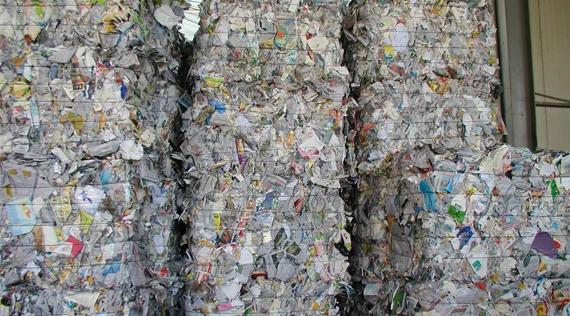
SEATTLE (Waste Advantage): At the end of May, the California Senate passed S.B. 54, the California Circular Economy and Plastic Pollution Reduction Act, introduced by Senator Ben Allen and modeled after the European effort. A day later, the state’s assembly passed identical legislation, A.B. 1080, introduced by Assemblywoman Lorena Gonzalez. If the bills clear opposite houses and earn the governor’s signature, it will be groundbreaking. “We haven’t seen anything like this elsewhere in the U.S.,” says Angela Howe, legal director of Surfrider, a nonprofit devoted to clean oceans and beaches, which is part of a coalition of organizations working in support of the legislation and reducing plastic pollution.
The focus of the legislation is on producer responsibility — both reducing the amount of waste generated and making sure what is absolutely necessary is either compostable or recyclable. On average only 9 percent of plastics are recycled in the United States, and that already-modest number is expected to decrease even further as more countries follow China’s lead in closing their doors to waste exports from the United States and elsewhere. Plastic isn’t just washing up on beaches, it’s piling up at landfills, making the crisis in the country even more urgent and expensive.
As written now the legislation would require manufacturers and retailers in California to reduce the waste generated by single-use packaging and products by 75 percent by 2030 through producing less plastic, recycling more of it, making reusable packaging, or using compostable materials. It would also set guidelines for manufacturers of single-use plastic packaging and products that would ensure that 20 percent of their products are recycled by 2024, 40 percent by 2028, and 75 percent by 2030.
“The single-use plastic crisis is so pervasive that we’re seeing microplastics in the tiniest plankton to the largest whales,” says Ashley Blacow-Draeger, Pacific policy and communications manager at Oceana, which is helping to support the legislation. “It just drives home the message that we can’t recycle our way out of this crisis. We need really strong, bold and timely action now and we don’t have any more time to wait to address the issue.”
Courtesy: https://www.wasteadvantage.com
| Copper Scrap View All | |
| Alternator | 0.31 (0) |
| #1 Copper Bare Bright | 3.64 (0) |
| Aluminum Scrap View All | |
| 356 Aluminum Wheels (Clean) | 0.72 (0) |
| 6061 Extrusions | 0.63 (0) |
| Steel Scrap View All | |
| #1 Bundle | 475.00 (0) |
| #1 Busheling | 495.00 (0) |
| Electronics Scrap View All | |